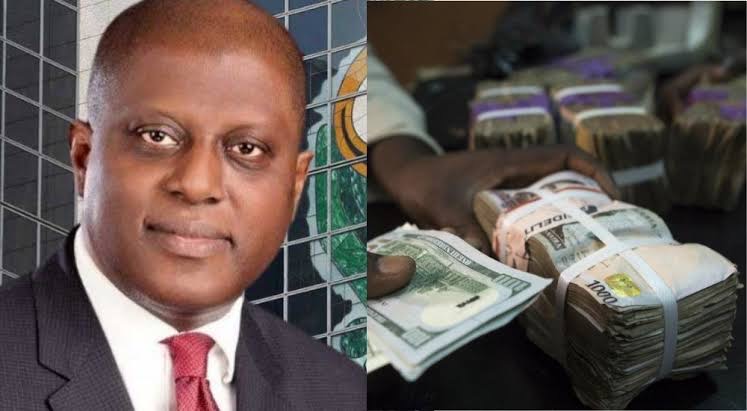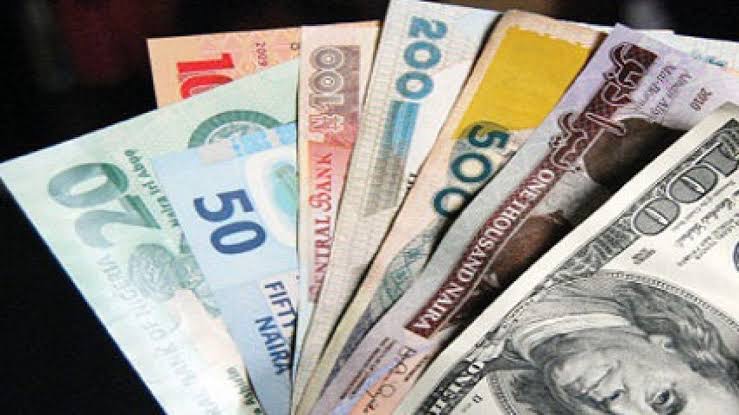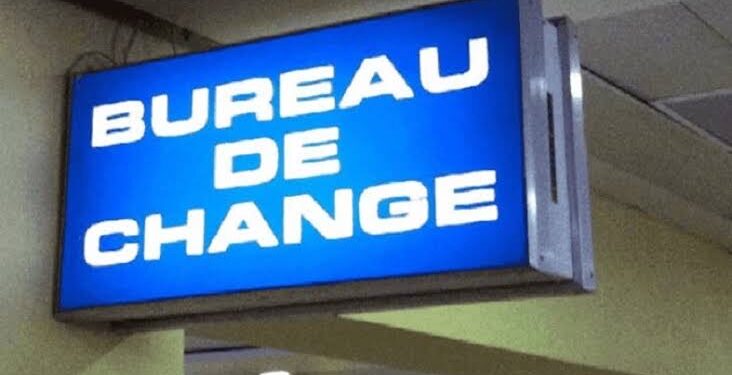While acknowledging the positive impact of the CBN’s dollar sales, the Bureau De Change (BDC) operators noted that the lack of continuity and frequency of action led to a loss of customer confidence in the foreign exchange market, thereby putting pressure on the parallel market.
They had advocated for the CBN to intervene in the retail market at least once or twice a week. On July 18, 2024, the CBN approved the sale of $20,000 to Bureau de Change (BDC) operators at the rate of 1,450 naira per dollar as part of efforts to address foreign exchange shortages, especially in the retail market, and strengthen the naira.
The allocation of foreign currency to BDC operators came at a time when demand pressures were high and the exchange rate was above 1,600 naira per dollar.
In approving the sale of dollars to BDCs, the CBN noted that it was observing persistent distortions in the retail market that favored the parallel market and further widened the exchange rate premium.

The measure is aimed at meeting the demand for unseen transactions, curbing the rise in exchange rate premiums in the parallel market, and ensuring a more stable exchange rate.
CBN Intervention
This is the fifth attempt by the CBN to sell foreign exchange to BDC operators since the central bank ordered a long-term suspension in 2021 following allegations of illegal foreign exchange transactions against these foreign exchange dealers.
However, the ban was lifted earlier this year following the revocation of licenses of over 4,173 BDCs in February.
In the first attempt in February 2023, the CBN sold $20,000 to each BDC at the rate of N1,301 per dollar, while in the second attempt, the central bank reduced the allocation by 50% and sold foreign currency at the rate of N1.251/dollar.
The sale of dollars to CBN-licensed foreign exchange dealers is one of the central bank’s intervention measures aimed at increasing liquidity and stabilizing the foreign exchange market. Other reasons include the regular sale of dollars to Authorized Foreign Exchange Dealers and the recent reintroduction of the Retail Dutch Auction System, where the central bank sold $876.26 million through banks to end consumers.
With the regular sale of dollars to BDC operators, the CBN appears to have succumbed to pressure from the Association of Money Exchange Operators of Nigeria (ABCON), which had been advocating for their participation in the foreign exchange market to improve liquidity, especially in the retail sector.
They argued that their exclusion from the foreign exchange market and the shortage of foreign currency supply caused the devaluation of the naira, and that without them the various exchange policies would not work.
Despite the CBN’s intervention in the foreign exchange market, the exchange rate remains high and volatile, with the dollar trading at 1,590 naira in the parallel market.
BDC operators complained about the frequency of dollar sales by the CBN, suggesting that it is insufficient to sustain the desired effect.

Also, the President of ABCON, Aminu Gwadebe, confirmed to Journalists that dollar selling has an immediate positive impact on naira appreciation.
However, he noted that the lack of consistency in exercise has led to continued volatility in the forex market due to demand pressure and the weak naira.
Gwadebe said, “The problem is the streamlining, only once, is it on the 18th of July or so? Like you said about 3 weeks, till now not any sales again.”
When asked if the CBN had complied with its allocations to BDCs, unlike in the past when there were complaints about delays by the central bank.
He said, “That is true you know that after then, they resumed sales sometime in January, then around March, April, they withdrew completely and then in the middle of last month around 18th of July they came up with an announcement to sell $20,000. Before then the rates were hovering around N1650 or thereabout, so when they came out there was impact because the rate also came down to below N1600 to about N1580 thereabout.
”So you know the thing is continuity, once people know that it is not what is coming frequently, before you know it people will now lose confidence again because our customers cannot wait without any information as to when they will get forex after which they will get their ticket and then travel. So that really will push the pressure back to the parallel market, so that’s the problem.”
The ABCON chairman said, “Every week, you know there was a time we were collecting three times a week, we want it sometimes twice a week, but even if it is once a week with frequency and volume and in line with cut-off time, so that will make everybody go to the market at the same time and the liquidity will come to the market at the same time. But if I know the window is open for one month for me to buy and with no cut-off time and then I am not sure when it will come again, people will not be encouraged to really come into the market.”
Gwadebe added, ”There are some of us looking at it, you know the payment centres are centralized, so some people honestly you know are not encouraged because you will go today they will say come tomorrow, you will go tomorrow they will say come next tomorrow, so also the operational difficulty sometimes, even though they are trying to also improve on that to the extent you see some people they will pay in their money it will take them 3 to 4 days without even getting their payment (dollar sales), so those are some of the challenges.”


































